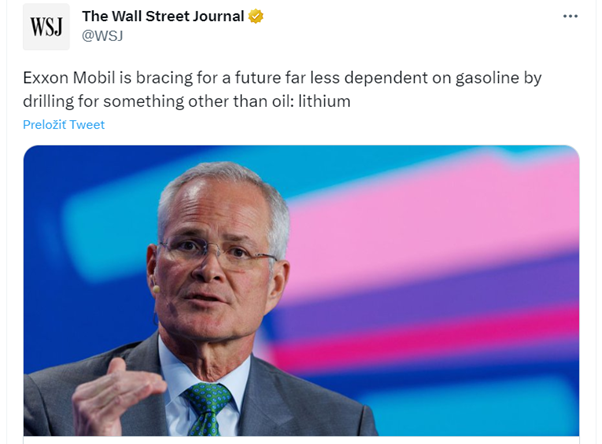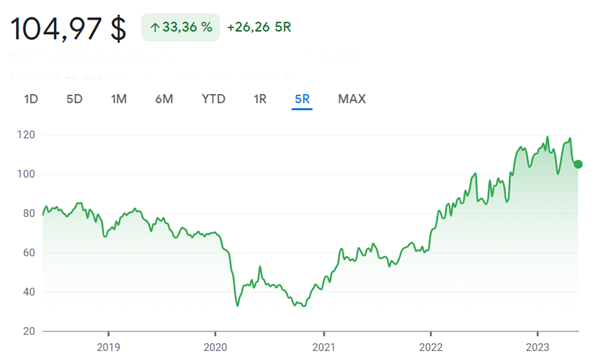Oil production companies are aware of the increasingly important trend towards the use of alternative energy sources. By diversifying their portfolios and creating other sources of income, they want to secure a stable position in a market that in the future will be less defined by oil and much more by electricity. Chevron Corp plans to buy US shale energy producer PDC Energy Inc in a USD 7.6 billion deal, while Exxon wants to focus on the extraction of important metals.

Exxon wants lithium
Oil company Exxon Mobil has acquired drilling rights to mine lithium in Arkansas, gaining an important element used in batteries for electric vehicles, phones and laptops. The acquisition covers 120 thousand acres from Galvanic Energy. With this move, Exxon secures a place in the future shape of a world energy market that increasingly relies on electricity. It will also already be playing a role in the more advanced energy field, diversifying its portfolio and helping the company stay on the trend. It has not yet officially announced lithium processing, but the drilling rights are part of a plan to invest $17 billion by 2027 to reduce carbon emissions and develop clean energy technologies.

Exxon's stock performance over the past five years (Source: Google)*
The G7 manages the flow of oil in the world
The G7 Summit, a gathering of leaders from the world's leading countries, was held in Hiroshima from May 19-21, hosted by Japanese Prime Minister Fumio Kishida. Representatives of Canada, France, Germany, Italy, Japan, the United Kingdom and the United States jointly adopted measures against price cap avoidance on Russian energy. Fatiha Birola, executive director of the International Energy Agency (IEA), thinks that the measures will not affect the global supply of oil and petroleum products. The G7 has agreed with the EU and Australia on a price ceiling for Russian naval oil to prevent Russia's revenue going to military action in Ukraine. IAE does not currently see reasons for adjustments and also does not expect significant changes. According to Birol, the price cap has achieved its purpose; the flow of Russian crude continues without causing complications in the market while reducing Moscow's revenues. The G7 leadership supports investment in gas as a form of reducing dependence on Russian energy, which in turn could affect the goal of achieving net carbon emissions. Nevertheless, the transition to clean energy is progressing faster than expected.
[*] Past performance is no guarantee of future results.


